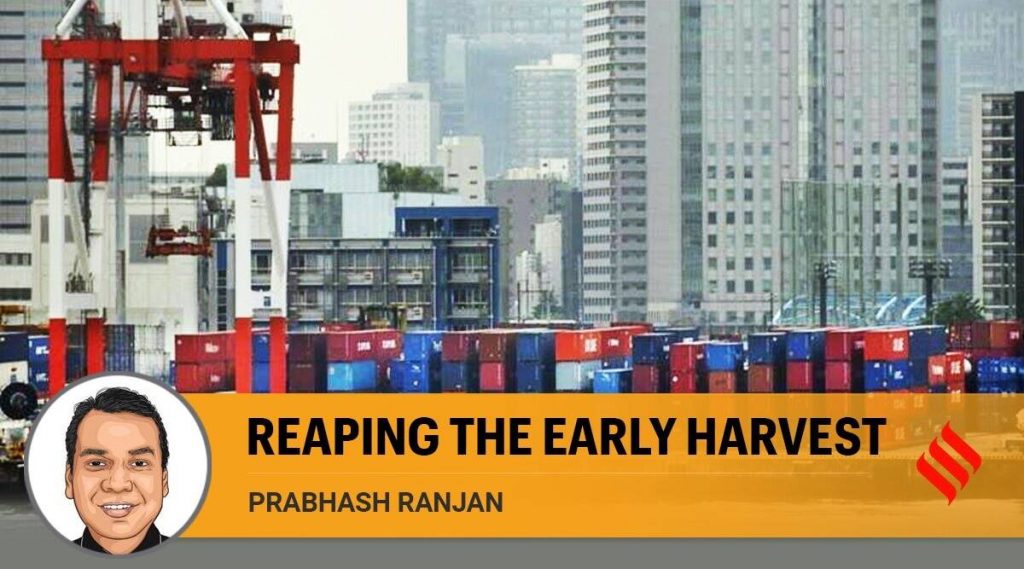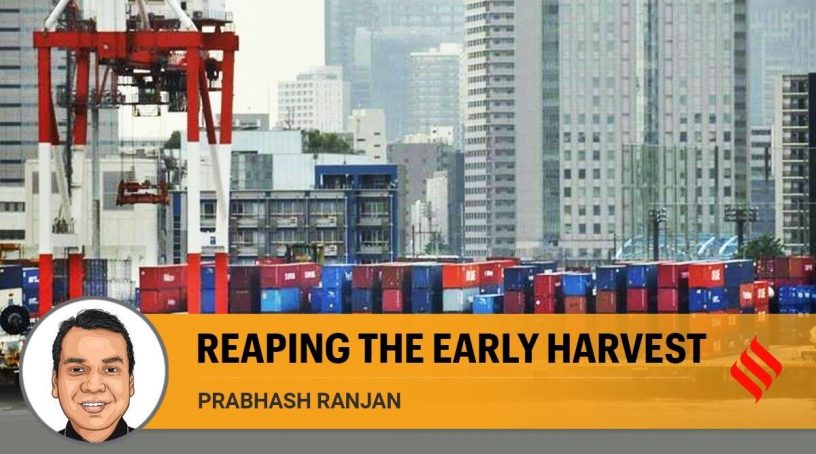
They can be saved from a possible indictment at the WTO if they are designed and presented as “interim agreements” leading to the formation of a free trade agreement.
Author:
Prabhash Ranjan, Professor and Vice Dean (Continuing Education), Jindal Global Law School, O.P. Jindal Global University, Sonipat, Haryana, India
Summary:
India wishes to fast-track its free trade agreement (FTA) negotiations with several countries like the UK, Australia, the European Union, and Canada. As part of these negotiations, India is keen to conclude an “early harvest” trade deal with some of these countries, liberalising tariffs on select goods. Many commentators welcome India’s rethink on FTA since it marks a departure from the trade protectionism that India has been practising over the past few years. Arvind Subramanian and Shoumitro Chatterjee have argued that between 2014 and 2020, India increased tariff rates on a wide category of products. This reversed the tariff liberalisation policy that successive governments have followed since 1991. The rise in protectionism ensured that India shied away from signing FTAs in the last seven years despite the Economic Survey 2019-2020 concluding that FTAs have been beneficial for India.
But FTAs are not just about economics. They are also about international law — an aspect that rarely gets the requisite attention. While countries are free to enter into FTAs based on their mutual interests, this freedom is circumscribed by the international law rules contained in the General Agreements on Tariff and Trade (GATT) and the World Trade Organisation (WTO). Being WTO members, these rules invariably apply to India and its prospective FTA partner countries.
The WTO system is premised on the principle of most favoured nation (MFN), that is, countries are prohibited from discriminating between their trading partners. So, an FTA where countries give preferential access to each other’s products at the cost of other countries is inconsistent with the MFN rule. Nevertheless, countries are allowed to sign FTAs subject to certain conditions. One such condition, given Article XXIV.8(b) of GATT, is to eliminate customs duties and other trade barriers on “substantially all the trade” between the FTA member countries. Although the meaning of “substantially all the trade” is not given in the agreement, it is evident that the FTA should cover a very high proportion of trade between the FTA member countries. The reason for this requirement is that since FTAs depart from the MFN principle, which is the foundational rule of the multilateral trading order, such departures should not be easily permitted.
Published in: The Indian Express
To read the full article, please click here


